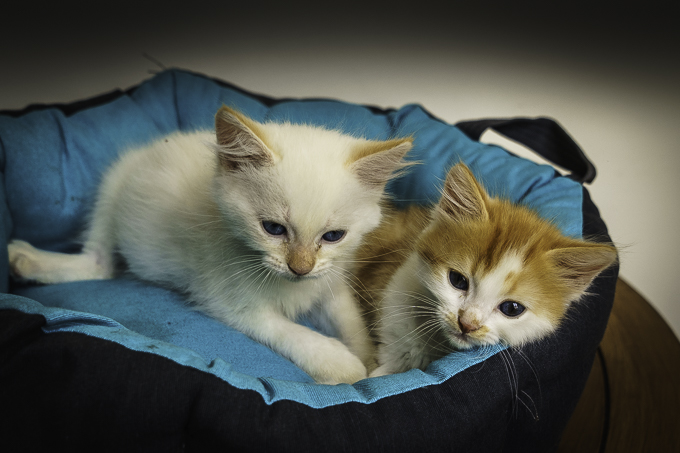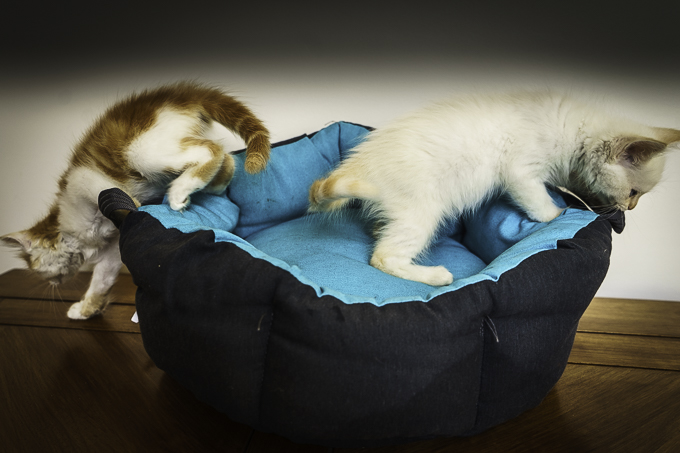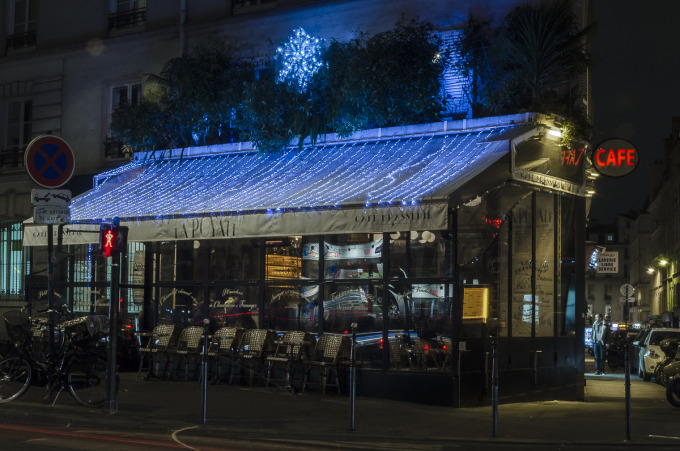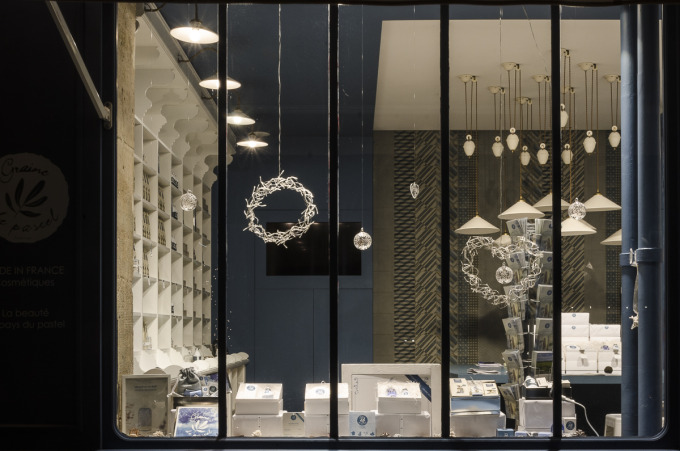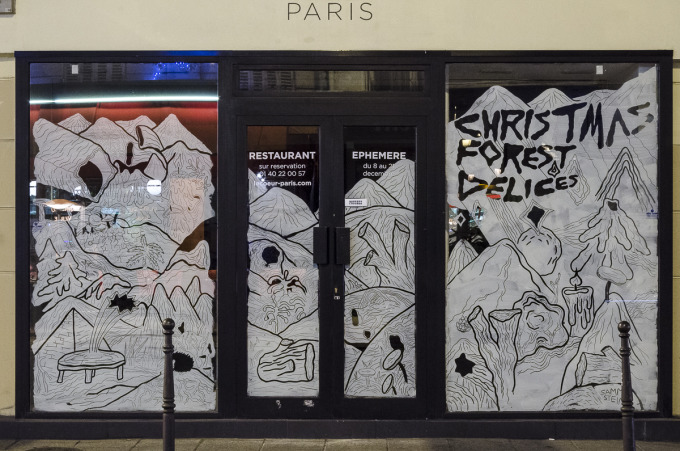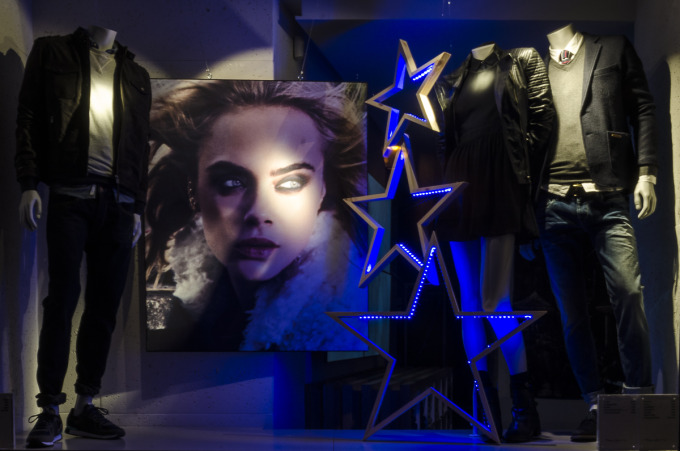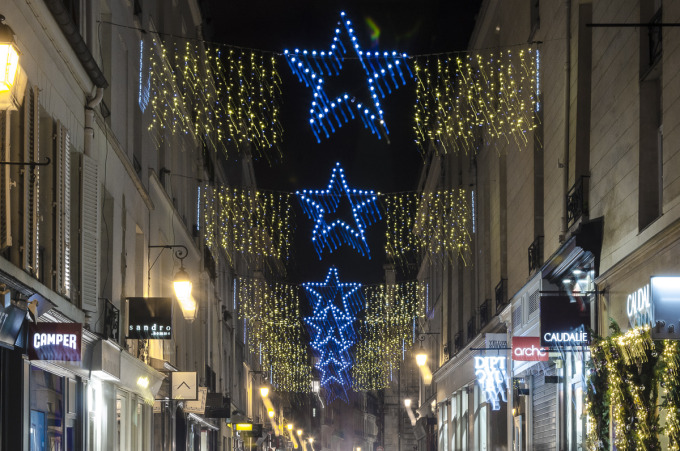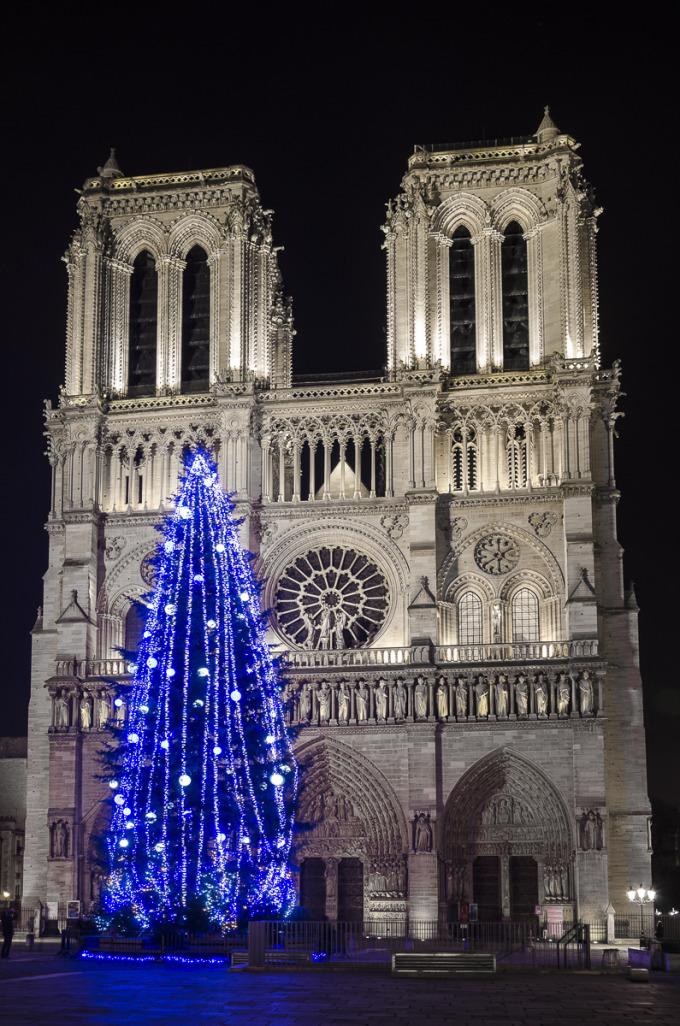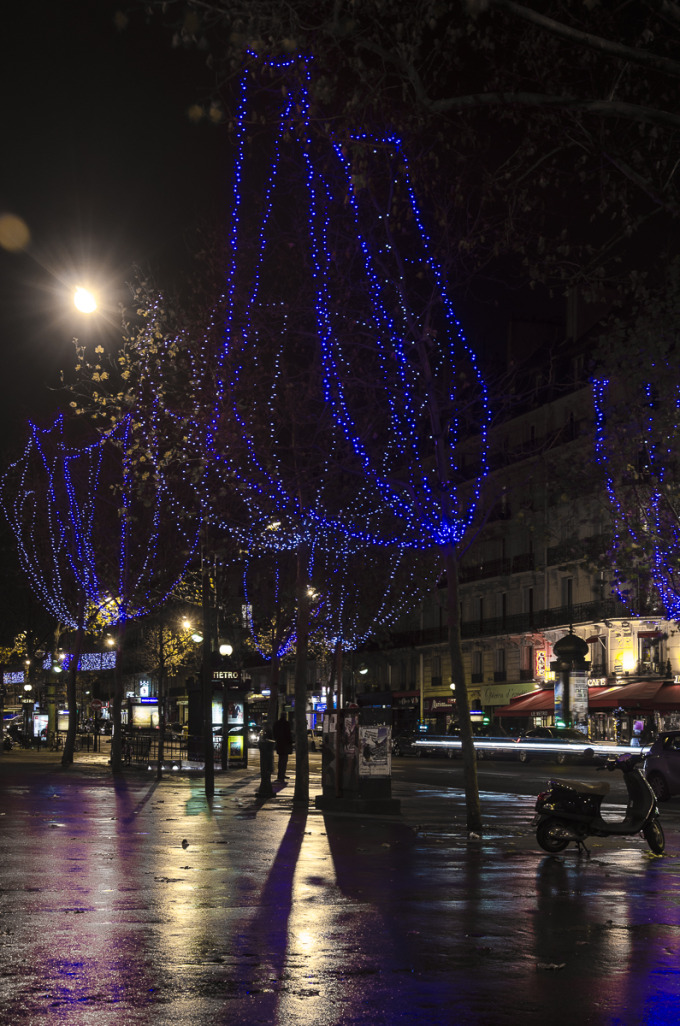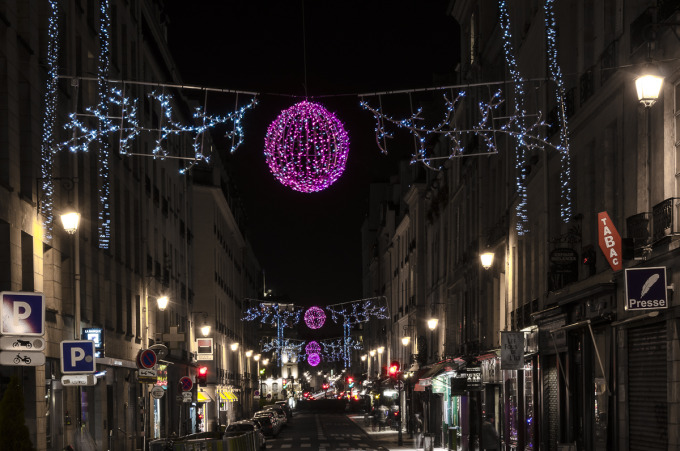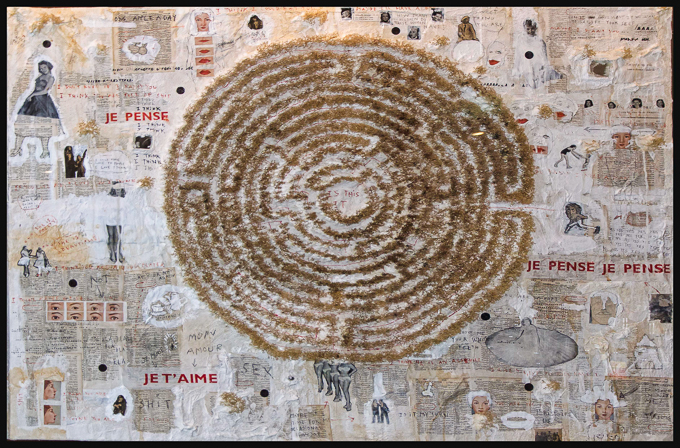Points of Interest
 10.2.2016
10.2.2016 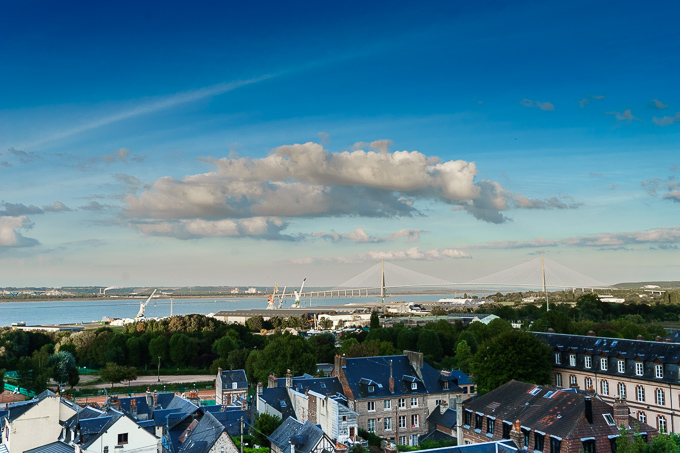
We used to play a game in Berkeley called Points of Interest. You opened old books and magazines and circled with a magic marker little details of whatever caught your eye. Richard and I will approach our past weekend in Honfleur, on the Normandie coast, by playing this game.
We arrive in Le Havre by train from Paris at two on a Friday and find that Avis, the only rental car company in town, is closed from noon to 4 p.m. Seriously? Can you imagine such a lack of entrepreneurial spirit in any major U.S. city?
On the drive to Honfleur, our Moroccan-French cab driver tells us about places to visit in Morocco, and about the anti-terrorist security there, more rigorous than in France. Just what we need to hear to make that trip.
At the top of our building on rue Lucie Delarue Mardus we find our Airbnb apartment:
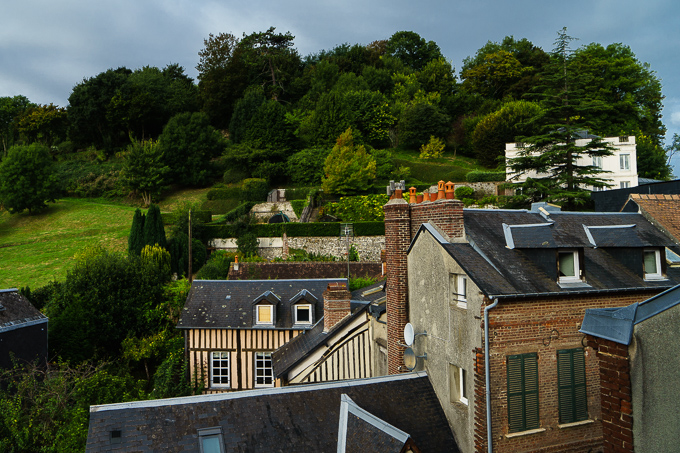
Green hills rise to the south, the mouth of the Seine to the north.
The Pont de Normandie spanning the Seine with its spider web pattern, mirrored by three delicate spider weavings outside the windows to the south.
What a pleasing sense of color the owner, Beatrice, has!
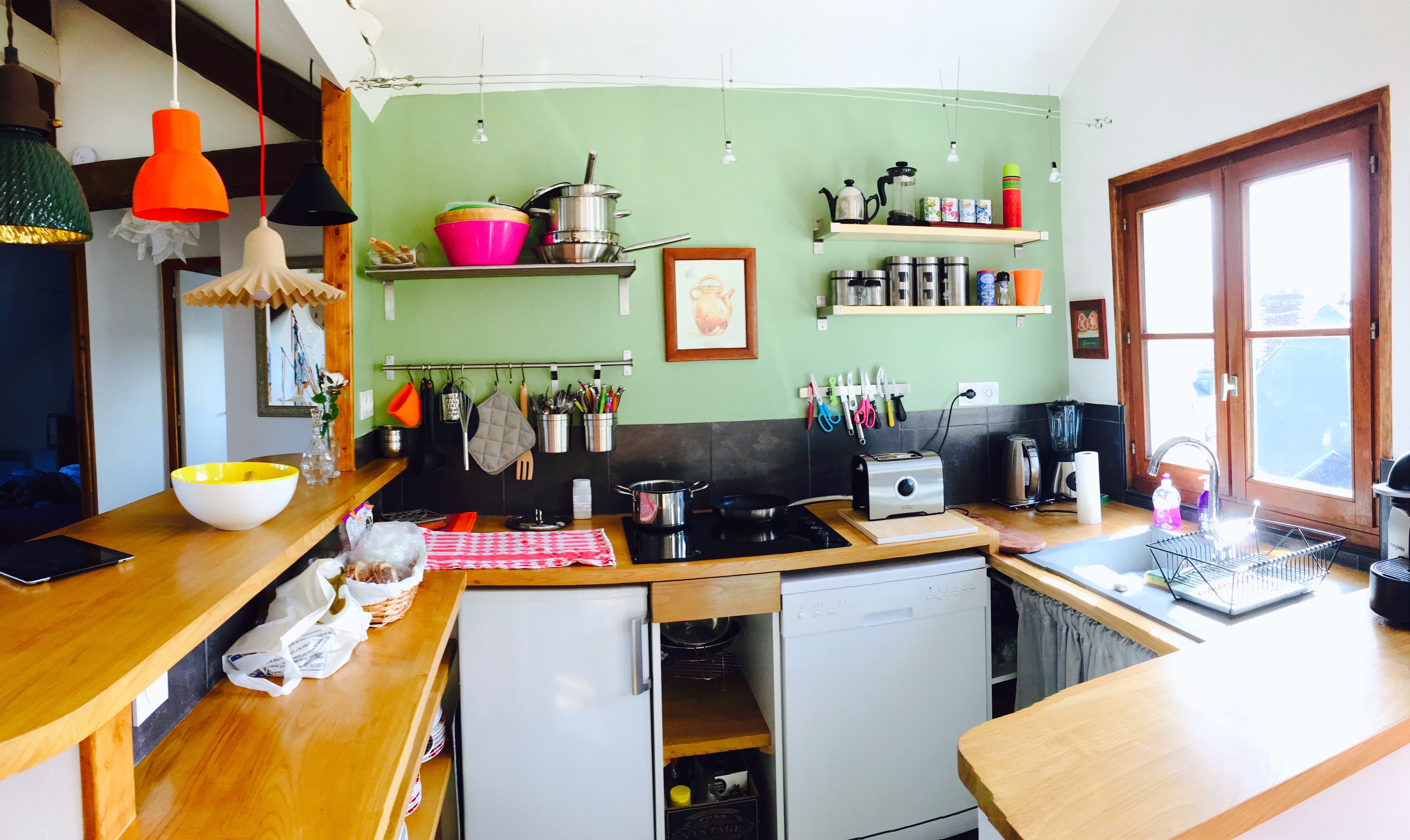
Celery green, a color I’d never think to use on kitchen walls, echoed in the couch, splashes of red and bright patterns on the throw pillows.
Look at the array of colors in the scissors and knife handles.
A basket of talking sticks, or—what are they?
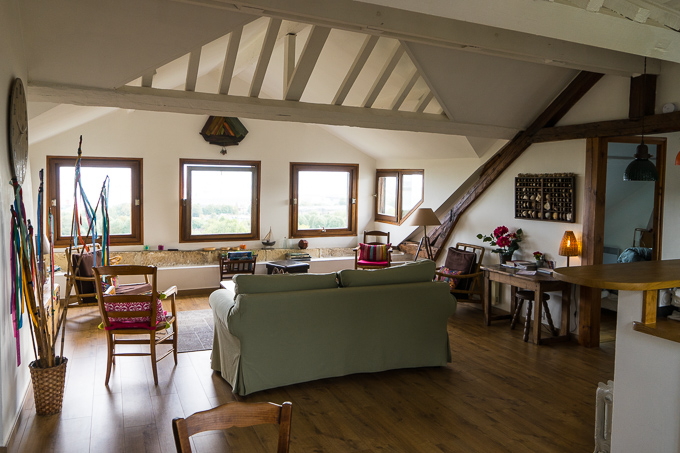
A meander around town looking for a restaurant open at 5 pm. Snacks, yes, but we’re in France. Most open at 7 p.m. We settle for galettes.
A visit to friends in the country. Donkeys, white horses, fields of long-legged stallions.
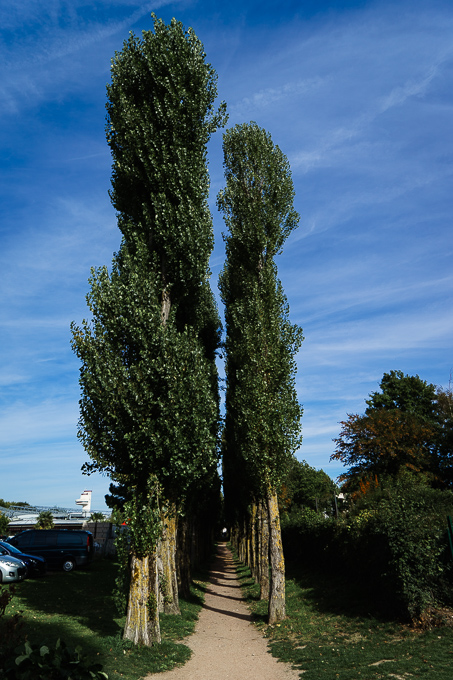
A cab driver who slows down, warns of boars crossing the road. I remember the scene in the film “La Reine Margot” where King Charles IX’s treacherous brother, the Duke of Anjou, lures him on a boar hunt in the forest where he is left to die from a ravaging boar, before his friend, the future Henri IV, comes to his rescue.
A long conversation with Richard about one of the wellsprings of his latest struggle with paralyzing depression: disappointment at not having mastered French in his last course at the Sorbonne, or the one before that at Alliance Française, or the five years of daily attempts at conversation.
How hard on yourself you are! Let’s approach learning French like children, who only want to connect! Let’s approach it like buddhas and laugh at ourselves! Let’s be surrealists and speak French, Spanish and English all at once, as Salvador Dali and our friend Jane Eliot did over dinner! We decide to take an immersion course together.
Reading a memoir that my friend Diane lent me, A Woman in Berlin, about the last months of World War II in Berlin, when German women were raped multiple times a day by Russian soldiers, written anonymously because the shame and repression of returning German soldiers was so profound. An eloquent document about the cost of war.
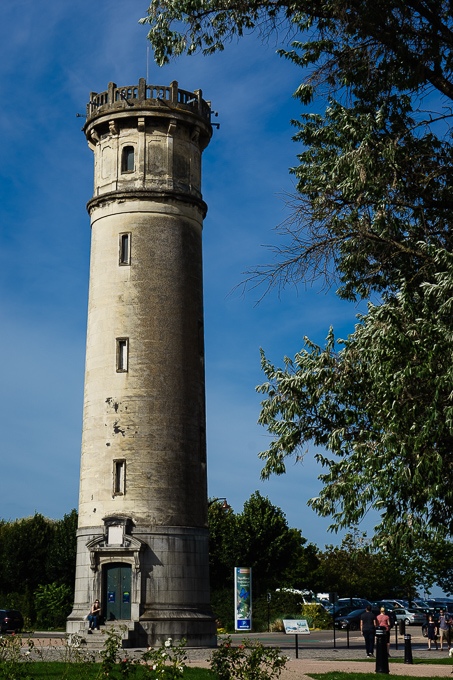
Richard is reading Swerve; How the World Became Modern by Stephen Greenblatt about the effect the poet Lucretius had on the Enlightenment, on Renaissance artists, and on my beloved Montaigne.
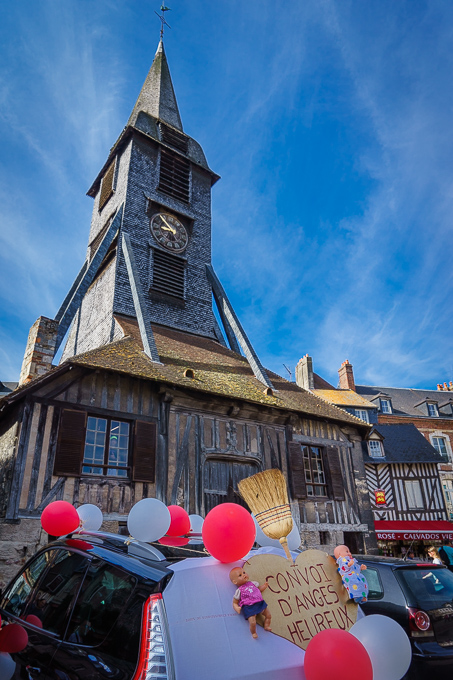
Flâneuring around town together and seeing a wedding outside the oldest wooden church in France, l’Église Sainte-Catherine, its bell tower in a separate building so the parishioners wouldn’t perish in case of a fire if it was struck by lightning.
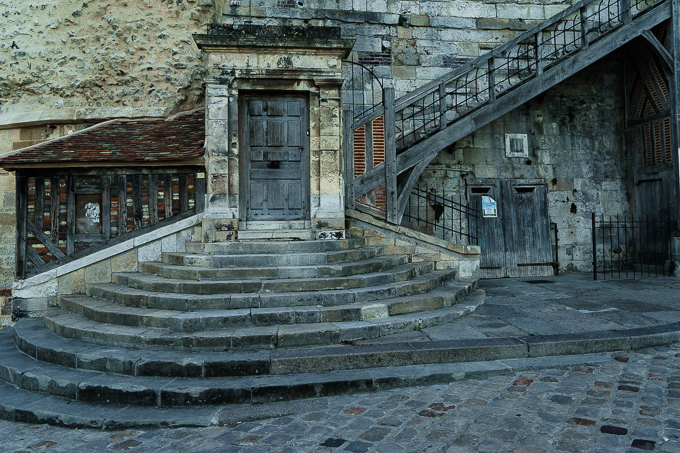
The town reminds me of Bergen from which my maternal ancestors left for America during the mid-nineteenth century.
Small white gulls swooping above the harbor, making me think of my sister, Jane.
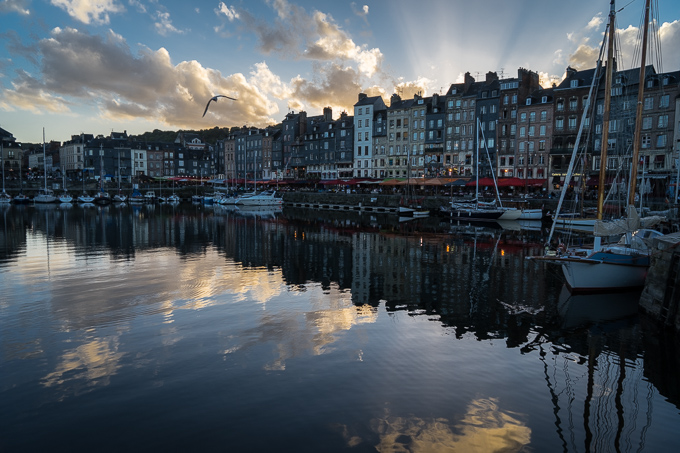
Handsome schooners lining the Vieux Bassin—memories of my years living on a schooner, as cook.
A sullen North African-looking man on a motorbike, with boom box blasting hostile rap. I give him a thumb’s up and he flashes a bashful grin.
Picking L’Hippocampe for dinner, and savoring a plate of choucroute with every kind of seafood: salmon, cabillaud, bream, langoustine, mussels, shrimp.
Richard urging me to write about my years on The Flying Cloud, the characters packed in, ten to the schooner, the groupies the single men attracted, the famous rock singers moored nearby in Lido Shipyard and Catalina Island, the stress for an introvert of communal living, dawning feminist awareness.
Struck by the mythical resonance of the seahorse, the hippocampe, one of Poseidon’s emblems, and our talk about a story of the sea.
The English man and woman at the next table who strike up a conversation with me when Richard leaves the table for a moment after dinner. The Englishman is a weight lifter, who cheers the Brexit decision, says he didn’t like NYC because there were “too many foreigners there.” Code for racism, which Richard catches on his return, and refuses to engage in, walking out of the restaurant to go photograph the port at night.
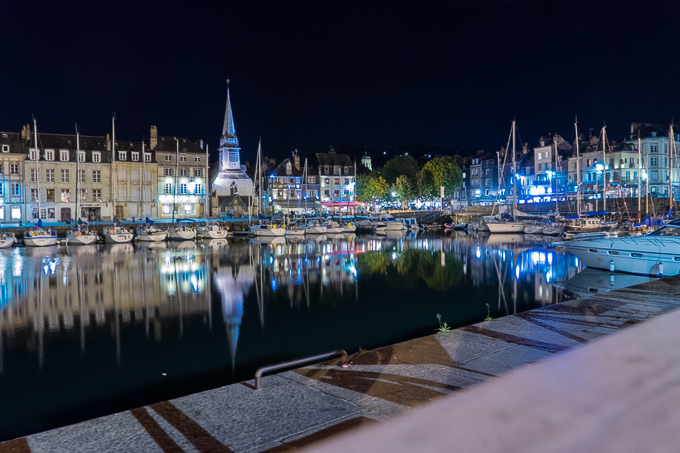
L’esprit d’escalier: the too-late comeback that occurs to you on the staircase after you leave: You mean a foreigner like you? Everyone in America is a foreigner except Native Americans.
Glimpses of the Seine to our left on the train back to Paris. One white swan. An egret.
The big-bellied train conductor, to whom we offer some Algerian Deglet Nour dates and two kinds of cheese. He turns up his nose. “I only eat fresh Medjool dates,” he says. “That cheese,” he says, pointing to Richard’s, “is industrial cheese. But the Camembert looks good.” Ah, these wonderful discerning French, experts in all matters of taste.

 Heimark family,
Heimark family,  Henri IV,
Henri IV,  Honfleur,
Honfleur,  Normandie,
Normandie,  ethnic groups,
ethnic groups,  family,
family,  travel in
travel in  Paris Life
Paris Life 

